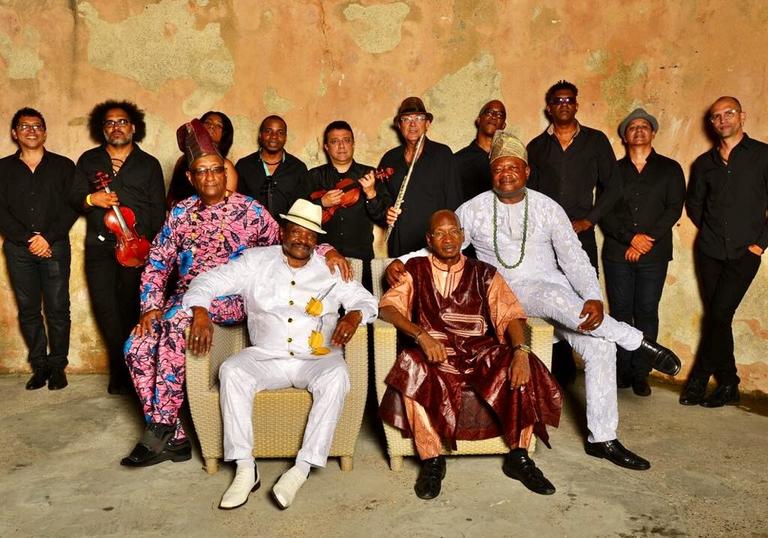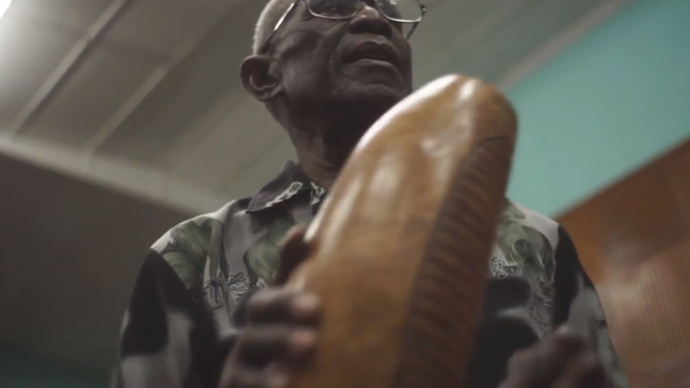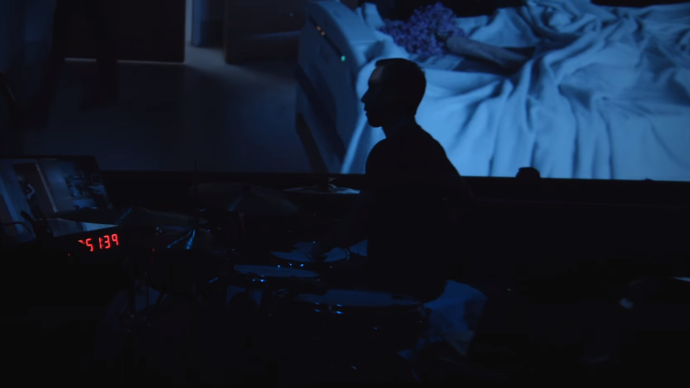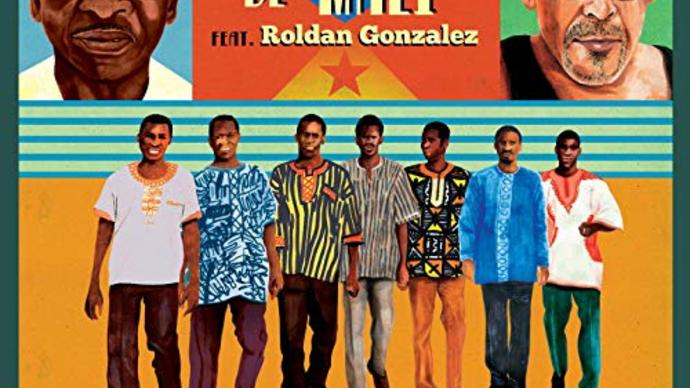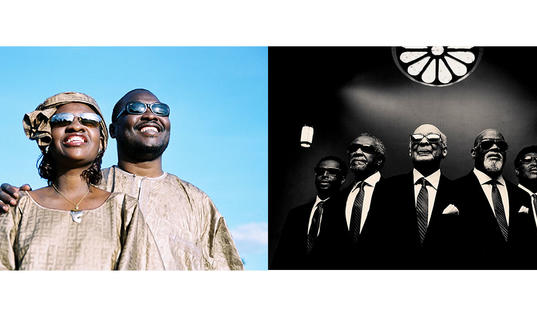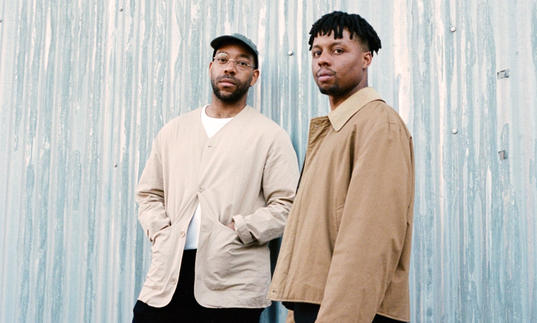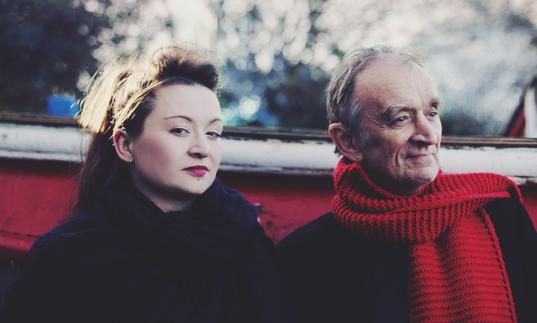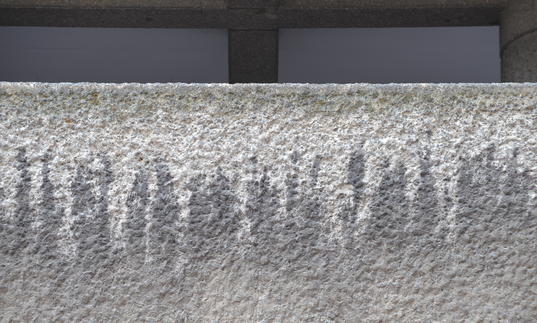In July of 2018, the Barbican hosted the scintillating Afro-Cuban All Stars, whose bandleader Juan de Marcos González had also steered the global phenomenon Buena Vista Social Club. The latter was originally conceived as a marriage of musicians from Cuba and Mali, to celebrate the long-standing union between the two countries, but the Malian visas didn’t materialise in time, leading to the Cuba/Ry Cooder alliance that swept all before it.
Yet long before Buena Vista Social Club was conceived, another exemplary – though little-documented - example of pan-continental fusion had taken place, namely Las Maravillas de Mali. The story of the “Marvels of Mali” is extraordinary, stretching back to ten young Malian men who made the trip west to the Caribbean, as students, cultural ambassadors and would-be teachers, a project formed by a new axis of communism that took on a life of its own, outside of politics and the classroom. Over fifty years after Las Maravillas played their first show, at the Embassy of Guinea in Havana (22nd September 1965, to be exact), their original bandleader, Boncana Maïga – also the last surviving member of the original septet - has assembled a new line-up to make its UK debut.
In 1964, the threat of the Cold War had reached America’s doorstep following the CIA’s botched military invasion of Cuba in 1961 and 1962’s Cuban Missile Crisis. Cuban prime minister (later president) Fidel Castro’s drive to improve the standard of living, across health, education and affordable access to art and culture, received ten musicians from Mali, sent by the regime of Modibo Keïta, Mali’s first president, two years into the West African country’s independence and new socialist doctrine. The men were to study Cuban music, and return to Mali to share their knowledge.
“We were young,” Maïga told writer Claude Grunitzky in 2016. “Initially, there were ten of us who went to Cuba, but some were sent back to Mali because they weren’t good enough, or weren’t working hard enough. At first, I didn’t know the other musicians, because I wasn’t from the same region as them. We had all met for the first time in Bamako before we took off for our trip to Cuba.”
The remaining seven musicians settled in Havana, but faced with Cuba’s vibrant music culture, were fired up to form their own band and compose their own songs, infusing Cuban traditions and singing in Spanish and Mali’s chief languages of Bambara and French. In 1968, Las Maravillas De Mali released a self-titled debut album. Standout tracks included ‘Africa Mia’, a perfect example of the Cuban charanga (a Latin band with flute and violin), and what has become the band’s signature song, ‘Rendez-vous Chez Fatimata’, rooted in danzón (one of the slow-tempo tributaries from the son Cubano motherlode) with elements of Malian rhythm and the West African griot tradition.
‘Rendez-vous Chez Fatimata’ was one of the great crowd-pleasers that Claude Grunitzky recalled from his parents’ patio parties in the late seventies when the family lived in the Togolese capital of Lomé, alongside another Latin-infused African anthem, ‘Independance Cha’ by Congo’s Grand Kallé. His memory is proof that Las Maravillas De Mali were not forgotten, though after the band were sent home after President Keïta was toppled in a coup and Mali’s political climate changed, the music and arts scene was stifled, and faced with orders to teach rather than make music, Maïga moved to the Ivory Coast: his bandmates, however, could not face uprooting again after almost ten years away. By the mid-eighties and the boom in so-called ‘wold music’, it was left to singer Salif Keita, guitarist Ali Farka Touré and kora player Toumani Diabaté to represent Mali at a level of international renown.
Going by the exuberant Afro-jazz-funk of the EP Koyma Hondo, four tracks recorded between 1978 and 1982 and repackaged in 2018 by the French label Hot Casa, Maïga moved on from Cuban music, but he also joined the ever-evolving New York-based Fania All-Stars and in 1992, co-founded Africando (again, preceding Buena Vista Social Club) to unite New York-based salsa musicians with Senegalese vocalists (and, later, musicians across many other African countries).
In 1999, French music producer Richard Minier was visiting Mali when he chanced on a band playing in a marquee, and recognised the source of their sound. “I asked the guy playing flute, ‘You play Afro-Cuban music in Africa?’ He said, ‘Yes, we love it, and I spent ten years in Cuba in the sixties.’ He told me the story of the Maravillas and introduced me to Boncana.” This set Minier off on an adventure: tracking down the band members and filming interviews, but he could not get sufficient funding to make a full documentary until 2016.
Minier’s documentary, Africa Mia: The Fabulous Story Of Las Maravillas De Mali, will do the film-festival circuit later this year. The accompanying soundtrack combines original album tracks with new versions of ‘Rendez- vous Chez Fatimata’, ‘Africa Mia’, ‘Boogaloo Sera Mali’ and ‘Radio Mali’ plus a new cover of Malian legend Kasse Mady Diabate’s Cuban-influenced ‘Balomina Mwanga’. Collaborators include Mali singer Inna Modja, Guinea singer Mory Kante and Roldan Gonzalez from the hip hop Cuban band Orishas. Kante also joins the new line-up at the Barbican tonight, alongside Cuban jazz pianist Pepe Rivero, adding a new, pan-continental chapter to the fabulous story of Maravillas De Mali.
